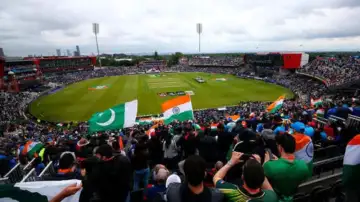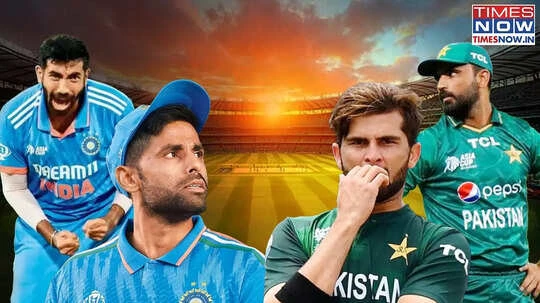“Nothing different, to be honest. I know it sounds pretty boring, but this is exactly what we feel as cricketers,” Virat Kohli said a few years ago on the pressure of facing Pakistan.
India-Pakistan matches in the early 2000s seemed like a war without shooting, where losing was not an option, but the rivalry went soft in the last decade due to the friendly camaraderie between the players. was still the most-watched contest till the last meeting in the T20 World Cup 2024, but the clash lacked the raw tension and needle of their previous encounters.
Not Another Game, Not This Time
The two teams will once again clash in the Asia Cup 2025 on September 14, but the usual camaraderie would have vanished – and victory will carry the weight of life and death.
India-Pakistan ties hit a new low after the Pahalgam attack on April 22, where 26 civilians lost their lives. India retaliated with Operation Sindoor and destroyed the terror camps in Pakistan. Things escalated quickly between the two nuclear powers, with Pakistan firing back across the border, bringing the subcontinent to the verge of a full-blown war before the countries agreed to a ceasefire.
Public anger against Pakistan was unprecedented, with calls across India to sever every remaining tie – and cricket, as always, became the most visible flashpoint. Reflecting that sentiment, the India Champions even refused to face Pakistan twice, including in the semifinal of the World Championship of Legends (WCL). The standoff only deepened the uncertainty surrounding India’s participation in the Asia Cup.”
BCCI’s Defiance In Eye Of A Storm
The , however, took many by surprise when they agreed to play in the Asia Cup. The decision faced massive criticism back home, as it stood in direct contrast to the public sentiment that had been building since the Pahalgam attack. Critics accused the BCCI of ignoring the national mood and prioritising business interests over emotions, with many calling it a betrayal of the country’s stance. The BCCI defended the decision, saying the pullout would have given Pakistan an undesirable advantage.

“This is not a bilateral contest but a match in a multi-nation tournament. If India does not play or forfeit the match, it will give Pakistan a huge advantage. This will be like giving them a walkover, which is not desirable,” sources told NDTV.
What’s In Store?
The blockbuster clash will unfold under a global spotlight, with a billion fans watching every ball and every gesture. The players have shared warm relations in the past, but the charged political climate will leave little room for camaraderie. Even the customary handshakes at the toss will carry an air of unease, setting a tone for a tense evening.
Pakistan have had a poor run in recent times, losing seven out of the 14 T20Is they’ve played, including a shambolic series defeat to Bangladesh. Their fragile form only offers a glimmer of hope against a rampant Indian side, brimming with depth, balance, and brute force. For India, this wouldn’t be like any other contest, but a battle where victory feels like survival and defeat is unthinkable.
If the teams’ quality and performances are any indication, India are not only favourites to win, but are expected to do so comprehensively, potentially handing Pakistan a thrashing like never before.
